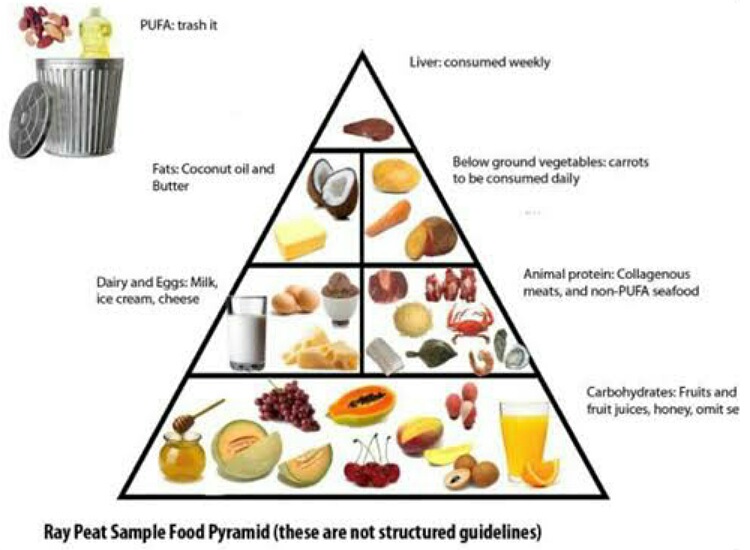There is a diet for hormonal disorders called the Ray Peat diet. Though the person who created this diet has not put up any info on it, there are some sources online on it from its users. What exactly is this diet? What can one eat in it? What should be avoided? Is it beneficial?
Ray Peat Diet
Ray Peat is a holder of a PhD in biology from the University of Oregon. He has specialized in physiology. He has immense teaching experience and has trained students at the National University of Naturopathic Medicine, University of Oregon, Montana State University, Urbana University, Universidad Veracruzana, the Universidad Autonoma del Estado de Mexico and also at the Blake Austin College.

It was in 1968 that he began work on progesterone and found that it has a protective role against the damages of estrogen, stress, radiation, and low oxygen. But he has not written any book on this diet. Nor has he any online source of info on it. Moreover, he refrains from answering any phone calls related to this matter. But he gives consultation on it to those who suffer from hormonal issues or unknown disorders.
Erin Holley, a dietitian from the Ohio State University Wexner Medical Center in Columbus says:
“The info I found online came from non-credible people, such as wellness coaches, functional nutrition therapy practitioners and other followers of his works.”
Foods allowed
On this diet, one can have healthy fats. But this includes saturated fats and coconut oil. PUFAs, according to this diet, are bad for body. Though they lower cholesterol, they burden the liver. Also, they produce oxidative stress and inhibit thyroid hormones. They promote inflammation and are bad for heart if one consumes them in excess.

Other foods allowed are dairy foods, fresh fruits and juices, root vegetables, meats, eggs, shellfish, and collagen. A follower of this diet, Benedicte Lerche reveals:
“Ray Peat is not afraid of sugar. That’s because the liver needs sugar to activate the thyroid hormones.”
But its consumption must be in moderation. Ray emphasizes on orange juice. But rinse mouth after drinking it to avoid tooth decay. But Erin advises against excessive orange juice intake. There is no mention of portion size in this diet.
Red light is advocated in this diet to destress. This slows aging and prolongs life, according to Ray. In this diet, one cannot have nuts, seeds, ultra processed foods and beans and legumes.
Is it beneficial?
There are anecdotal cases of improvement on this diet. But no proper large scale studies are present on the health benefits of this diet. Erin states that there is no scientific backing to this diet but adds:
“I do not believe these foods to be harmful either.”
She says it’s a mix of good and bad. She likes the Ray Peat carrot salad. She states that it is good but might not correct hormonal imbalances.

Read here 8 foods rich in phytoestrogens! Their health benefits!
The bottom line is to first consult a licensed health practitioner for your symptoms. You may use this diet as a supplementary therapy but under medical supervision and have the diet foods in moderation. Do not go overboard with them. Erin concludes:
“I really don’t think any of these foods are bad or wrong to include in your diet. But I would not recommend limiting oneself to only the foods that are part of this diet.”
“The best thing for us is truly getting as much variety as possible. This is how we get more vitamins, minerals, phytochemicals, antioxidants, fiber (and a) variety of prebiotics and probiotics.”